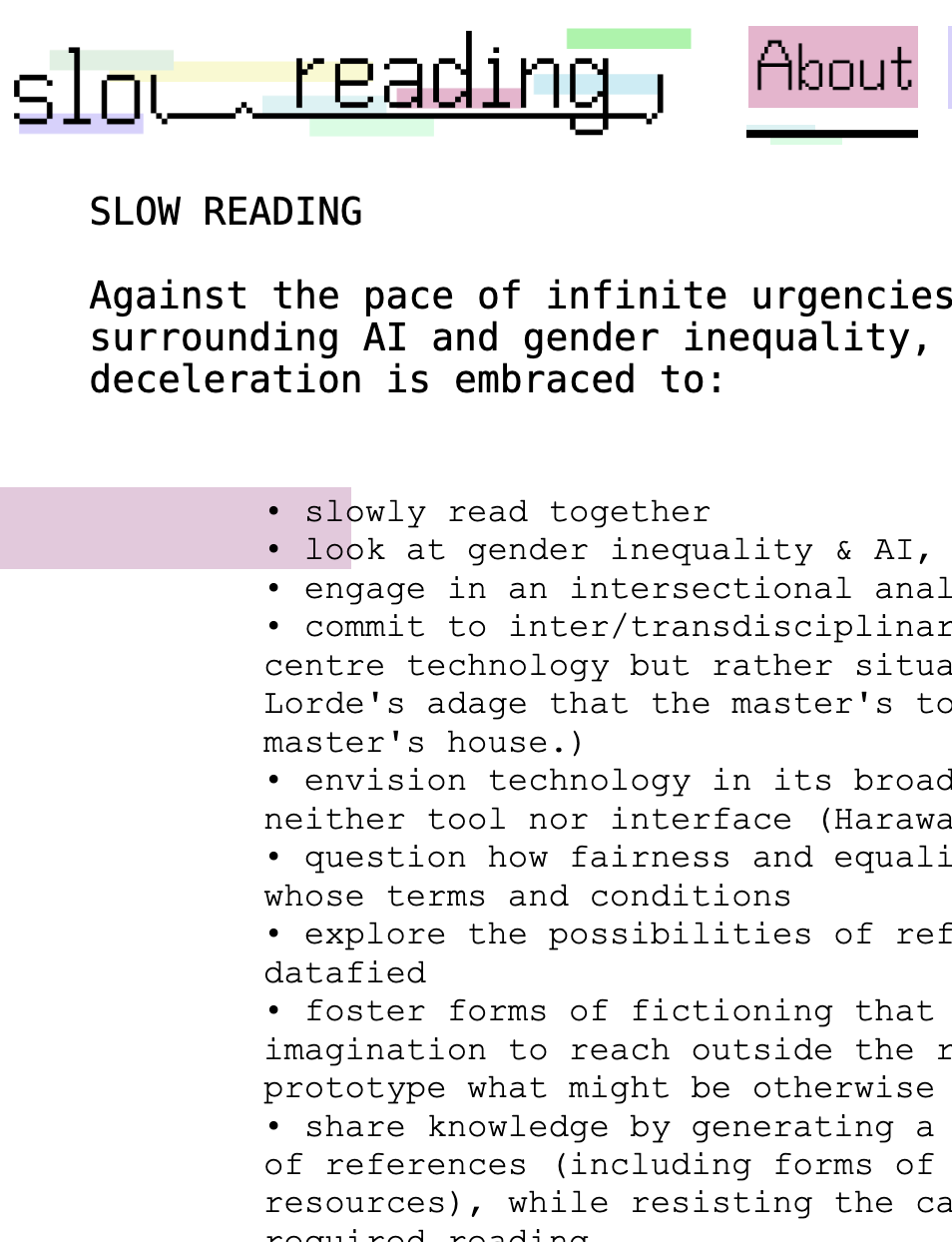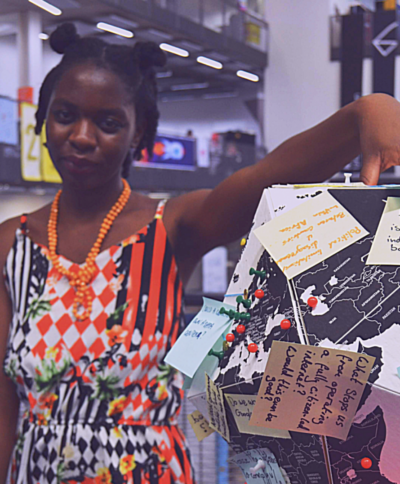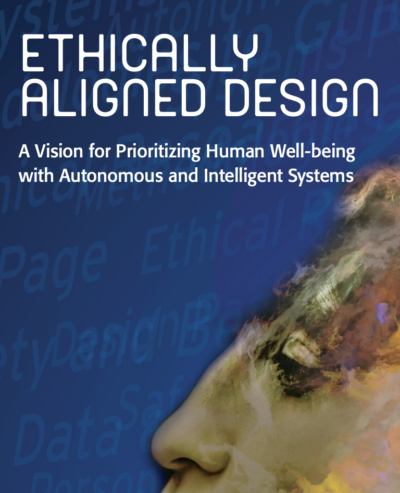“Against the pace of infinite urgencies surrounding AI and gender inequality, deceleration is embraced to:
• slowly read together
• look at gender inequality & AI, while not reinforcing the binary
• engage in an intersectional analysis (Crenshaw)
• commit to inter/transdisciplinary approaches that do not seek to centre technology but rather situate and challenge it (ethos: Audre Lorde’s adage that the master’s tools will never dismantle the master’s house.)
• envision technology in its broadest and entangled sense as neither tool nor interface (Haraway).
• question how fairness and equality are defined and according to whose terms and conditions
• explore the possibilities of refusal – the right not to be datafied
• foster forms of fictioning that engage the speculative imagination to reach outside the restraints of wicked problems and prototype what might be otherwise
• share knowledge by generating a living glossary and bibliography of references (including forms of practices, texts and other resources), while resisting the calcification associated with required reading
• explore the idea of machine pedagogies versus machine learning in order to interrogate what is knowledge acquisition in this context
• search for and acknowledge our blind spots and biases as we move along
• read up to power up (Corita Kent)
• update and alt
SLOW READERS are collectively pulled and guided by the negotiation of individual interests, fascinations, and disciplinary backgrounds. Research is emergent, transdisciplinary, and at times, rubbing against the grain of linear logic. Some of the reading methods employed are slow code reading, quilted or fragmented reading, adjacent reading, annotation as reading, divination reading, transcription as reading, reading aloud, reading through translation, reparative reading, dataset reading, reading in temporal drag etc. Rather than streamlining for clarity, SLOW READERS persistently move through and engage with the quagmire.”




